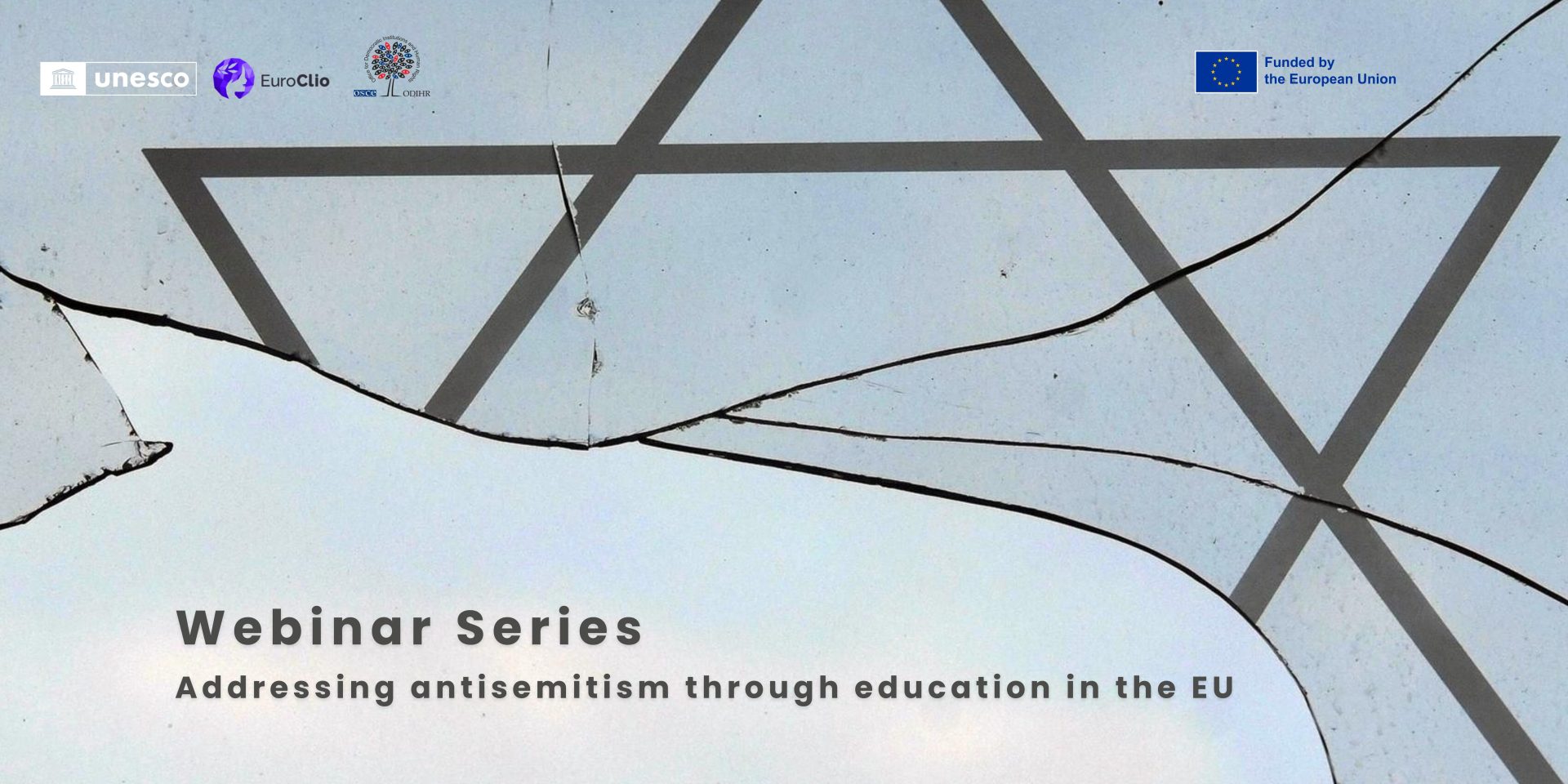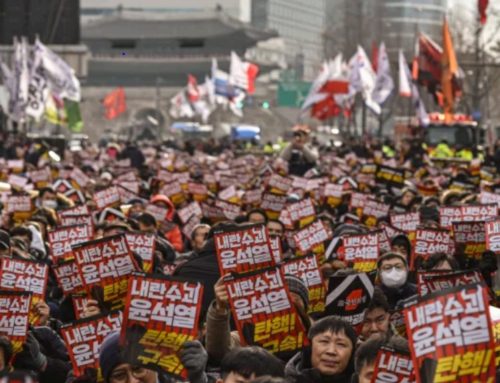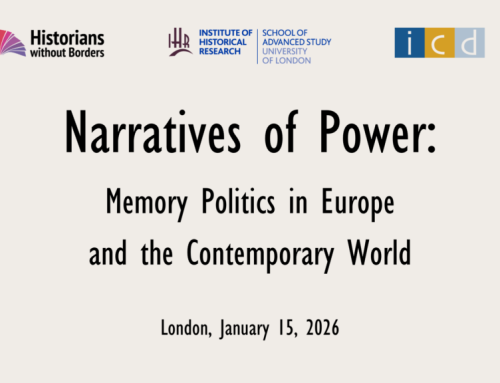Many teachers will need to teach about antisemitism in their school practice. It might come up as a topic of a history lesson, in questions from students, or because of an antisemitic incident at school. But the available training or lesson plans are not always sufficient. How to react to an antisemitic incident in the classroom? What does contemporary antisemitism look like? How is teaching about the Holocaust relevant to the students’ everyday life? What antisemitic content do students come across online?
A series of seven webinars, co-organised by UNESCO and EuroClio, aims to tackle these and similar questions. We want to empower teachers across all EU states by providing not just theoretical knowledge but also practical tools that can be used in the classroom. It will also be a chance to ask questions based on your own experience and perspective.
The webinar series takes place between September and December this year (see the dates and titles below). In each webinar, two experts will talk about a selected aspect of antisemitism and answer questions from the audience. With the help of professional interpreters, the webinars can be accessed in three languages: English, French and German.
The series is intended for teachers and educators from all EU countries, at all levels of schooling, including teacher trainees; however, other participants are also welcome.
No prior knowledge of antisemitism or of antisemitism education is required. Participants who attend a minimum of three webinars can request a certificate of participation. Please direct your certificate request to Carolina Santillano (carolina@euroclio.eu).
Please click here to register for the first webinar. Registration links to the following webinars will be published in the table below and on euroclio.eu/eventpage
| Date | Topic & Registration link | More info |
|---|---|---|
| Tuesday 24 September 16-18:00 CET |
Educating about the history of antisemitism | The first webinar explores the long history of antisemitism, its evolution over time, and ways in which educators can highlight the continuity between historical and contemporary antisemitism. |
| Tuesday 1 October
16-18:00 CET |
Educating about antisemitism in relation to other types of prejudice | The second webinar of the series explores how antisemitism, racism, misogyny and other types of prejudice can overlap, and the ways to discuss this in the classroom setting. |
| Tuesday 15 October
16-18:00 CET |
Recognising and countering antisemitic stereotypes and prejudice | In the third webinar of the series, the speakers present the antisemitic stereotypes and prejudice present in today’s world, and the ways of addressing them through education. |
| Tuesday 29 October
16-18:00 CET |
Countering Holocaust denial and distortion through education | The fourth webinar, marking the halfway point of the series, addresses the issues of Holocaust denial and distortion: their background as well as tools to tackle them through education. |
| Tuesday 12 November
16-18:00 CET |
Building resilience against antisemitism and conspiracy theories on social media | The fifth webinar of the series addresses the content as well as forms of antisemitic expressions on social media, paying special attention to conspiracy theories as a vehicle for antisemitism. It also tries to answer the question of resilience against conspiracy theories and against radicalisation. |
| Tuesday 26 November
16-18:00 CET |
Addressing antisemitism and anti-Muslim hatred in the context of the current situation in the Middle East | In the penultimate webinar, experts address antisemitism and anti-Muslim hatred in the context of the situation in the Middle East and present ways of dealing with difficult discussions on the subject in the classroom. |
| Tuesday 17 December
16-18:00 CET |
Responding to antisemitic incidents in schools | The final webinar of the series explores approaches to tackling antisemitic incidents or language in schools, as well as less direct antisemitic expressions. In their presentations, experts touch on issues of antisemitism normalisation in entertainment, sport and culture. |
The series is part of the UNESCO project “Addressing antisemitism through education in the EU” in partnership with the Organization for Security and Co-Operation in Europe (OSCE) Office for Democratic Institutions and Human Rights (ODIHR), funded by the European Commission through the Erasmus+ Programme. It also includes a special event on Holocaust denial and distortion, as part of the EU-funded project on countering Holocaust denial and distortion.













